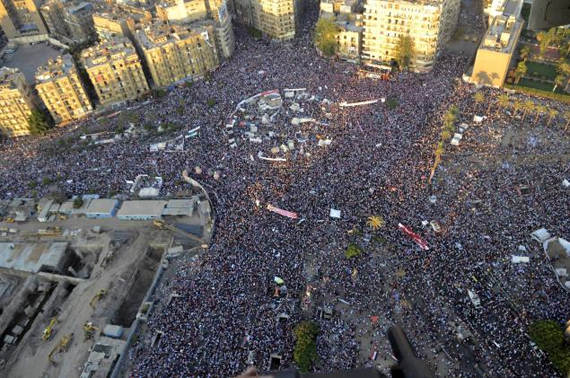
Washington, Jul 28: The US, Canada and the United Nations has called for calm and peace in Egypt amidst escalation of violence in the country leaving more than 100 people dead and some 4,500 injured.
The US Secretary of State John Kerry has spoken to Egyptian leaders like interim Vice President Mohamed ElBaradei and Interim Foreign Minister Nabil Fahmy asking for calm.
At least 120 were killed yesterday when Egyptian troops opened fire on deposed President Mohammed Morsi's supporters demanding his reinstatement, the Muslim Brotherhood said.
Kerry said the continued violence sets back efforts at "reconciliation and democratisation," and affects regional stability. The US is urging "an independent and impartial inquiry" and for political leaders to help their country "take a step back from the brink," he said.
"Violence not only further sets back the process of reconciliation and democratisation in Egypt, but it will negatively impact regional stability. At this critical juncture, it is essential that the security forces and the interim government respect the right of peaceful protest, including the ongoing sit-in demonstrations," Kerry said in a statement.
US Defence Secretary Chuck Hagel spoke to Egyptian Defense Minister General Abdul Fatah al-Sisi over phone to express deep concerns about the security situation and recent violence in Egypt, and encouraged restraint to be exercised during this difficult period.
"The United States believes that the current transition needs to be marked by inclusivity, that Egyptian authorities should avoid politicised arrests and detentions, and take steps to prevent further bloodshed and loss of life," said Pentagon Press Secretary George Little.
"It is in the short and long term interests of the Egyptian people to renew their path toward democratic transition, and to emphasise tolerance across the political spectrum," Little said.
Meanwhile, at the United Nations headquarters in New York, the UN Secretary General, Ban Ki-moon, strongly condemned the upsurge of violence in Egypt.
"Egypt's security forces must act with full respect for human rights, including guaranteeing the rights to free speech and assembly. He also urges the demonstrators to exercise restraint and preserve the peaceful nature of their protests," said an UN statement.
Ban urged that the deposed Egyptian president Mohammed Morsi and Muslim Brotherhood leaders currently in detention should immediately be released or have their cases reviewed in full transparency.
Expressing deep concern and appalled by reports of deadly clashes last night in Nasr City, the Canadian Foreign Minister, John Baird, too urged all parties in Egypt to remain calm, avoid violence and engage in meaningful political dialogue.
"Canada firmly believes that the only way to move forward and restore calm is to respect the voices of all Egyptian citizens and the contributions of its civil society, including religious minorities. All Egyptians deserve a stake in the future stability and prosperity of Egypt," he said in a statement.





Comments
Add new comment